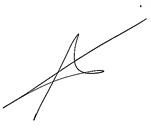SIMONE WEIL

This French philosopher and activist, who died young (Paris, 1909, Ashford, England, 1943) was a brilliant, highly honest intellectual and a courageous person. Her family offered her a privileged environment for education (his brother was the renowned mathematician André Weil) and she excelled as a student of classical literature and philosophy at the École Normale Supérieure in Paris, where she had better qualifications than Simone de Beauvoir herself.
She started as a teacher at age 22, but her disagreements with the educational methodology and policy ideas often made her to move from institution to institution. Unionist and peace activist, Weil met the main figures of Communism and Anarchism, like Trotsky, Souvarine, Lazarevitch or Durruti. She herself worked as a laborer in Renault and in farms because she considered manual labour as a center of culture, inseparable from the intellectual work; in fact, she stated that the separation of manual and intellect has led to the power relationship from the intellectualized over workers and advocated for a responsible revolution for the transformation of society.
Such was her passion for these ideas of equality, that she got involved in the Spanish Civil War on the Republican side, but never got to use any gun. Part of a Jewish family which had to emigrate to the United States under the threat of the Nazis, Weil would also be enlisted in the resistance, in England, although she always preached non-violence (which also would lead Gandhi himself).
Sehe wrote for several journals, and her work was only published by her friends after her death from tuberculosis in an English hospital. Her essays include ‘Reflections on the Causes of Freedom and Social Oppression’, ‘Essential Writings’ and ‘Historical and Political Writings’.
A few excerpts from her thoughts:
We must make what is possible to achieve the impossible.
Beauty is the harmony between chance and good.
Just a kind of balance unequals force.
To kill by our thought everything we love: the only way to die.
Money, mechanization, algebra. The three monsters of the present civilization. Perfect analogy.
Man’s greatness is always to recreate his life; to recreate what has been given to him. To fashion that very thing that he undergoes. Through work he produces his own natural existence.
What counts in a human life is not the events governing the course of years, or even months, or even days. It’s the way in which each minute is linked to the next, and what it costs to each person in his or her body, heart, and soul —and above all, in the exercise of the faculty of attention— to bring this linking about minute by minute.
Truth is not an object of love. It is not an object at all. What one loves is something which exists, which one thinks on, and which may hence be an occasion for truth or error. A truth is always the truth with reference to something. Truth is the radiant manifestation of reality. Not truth but reality is the object of love. To desire truth is to desire contact with a piece of reality. To desire contact with a piece of reality is to love. We desire truth only in order to love in truth. We desire to know the truth about what we love. Instead of talking about love of truth, it would be better to talk about the spirit of truth in love.
Love is linked with Good.
Whenever one tries to suppress doubt, there is tyranny.
Desire is a longing of thought into the future.
Friendship is not to be sought, not to be dreamt, not to be desired; it is to be exercised (it is a virtue).
Nothing on Earth can stop a person from feeling themselves born for liberty. Never, whatever may happen, can they accept servitude; for they are thinking creatures.
Let’s get to know this extraordinary thinker, always driven by the desire for peace and understanding for people.
I wish you a happy week,
Álex Rovira


Para dejar un comentario en cualquiera de los artículos del blog deberás identificarte con tu perfil de usuario de Facebook y podrás decidir si quieres que se publique en el Sitio Web y además en tu muro de Facebook. SID & FORTUNE, S.L.U. es la Responsable del Tratamiento de tus datos, con la finalidad de moderar y publicar tu comentario con tu nombre. En ningún caso se publicará tu correo electrónico.
Tienes derecho de acceso, rectificación, supresión, limitación, oposición al tratamiento y portabilidad. Puedes ejercitar tus derechos en [email protected]. Más información en la Política de privacidad.